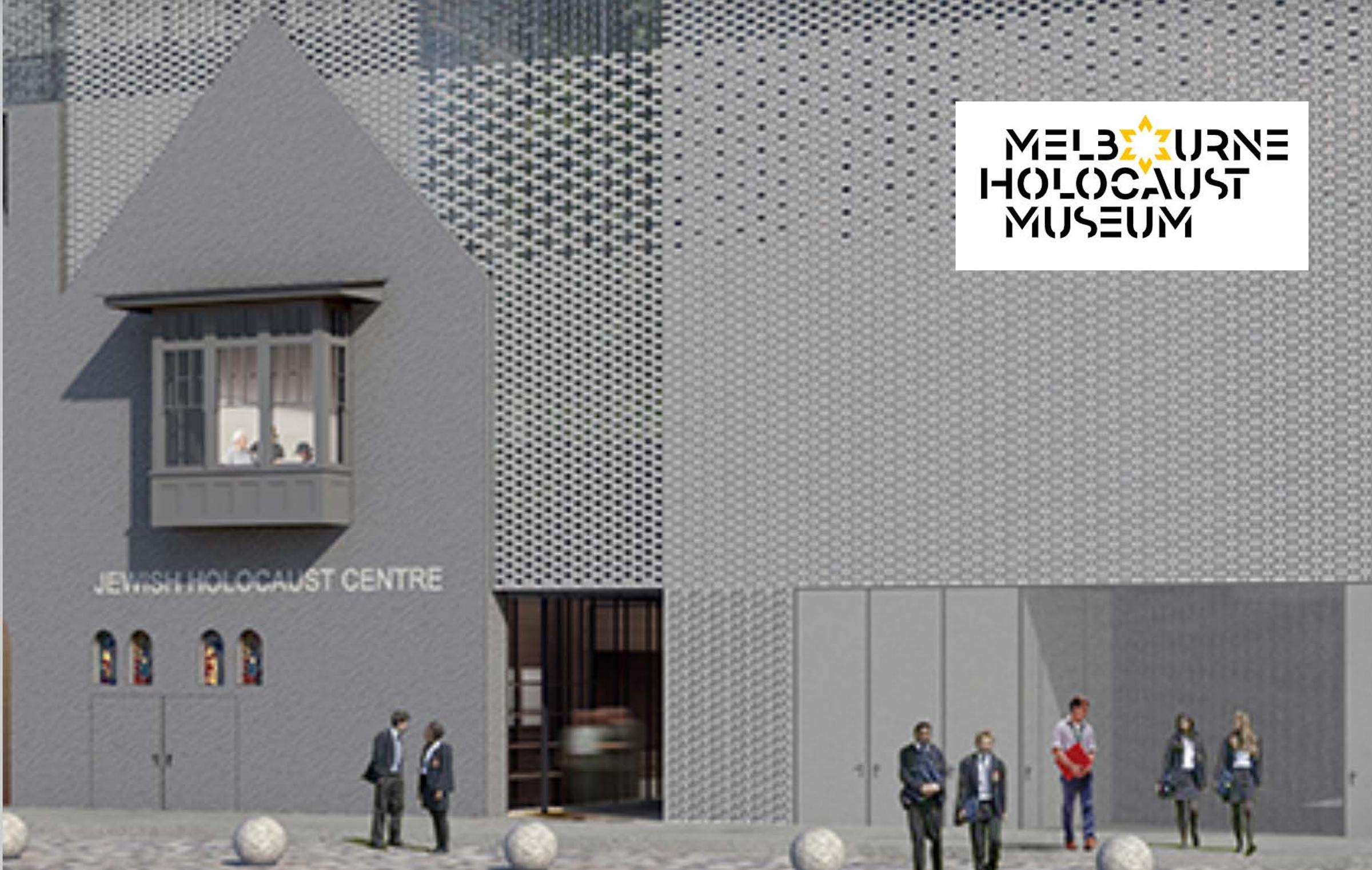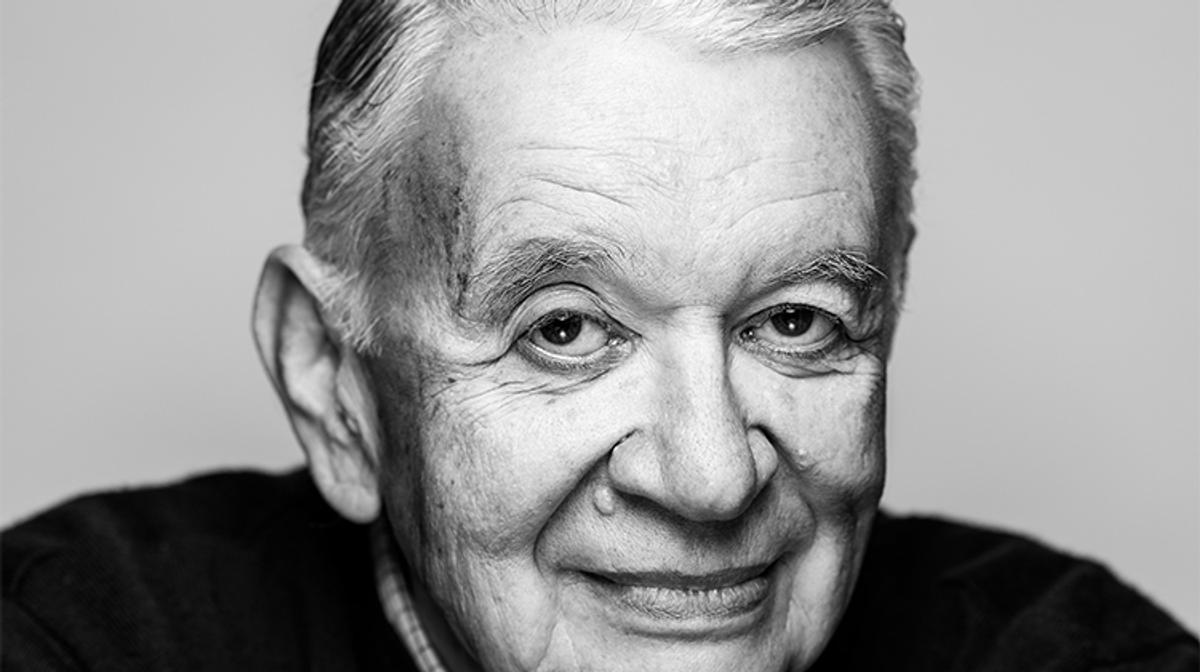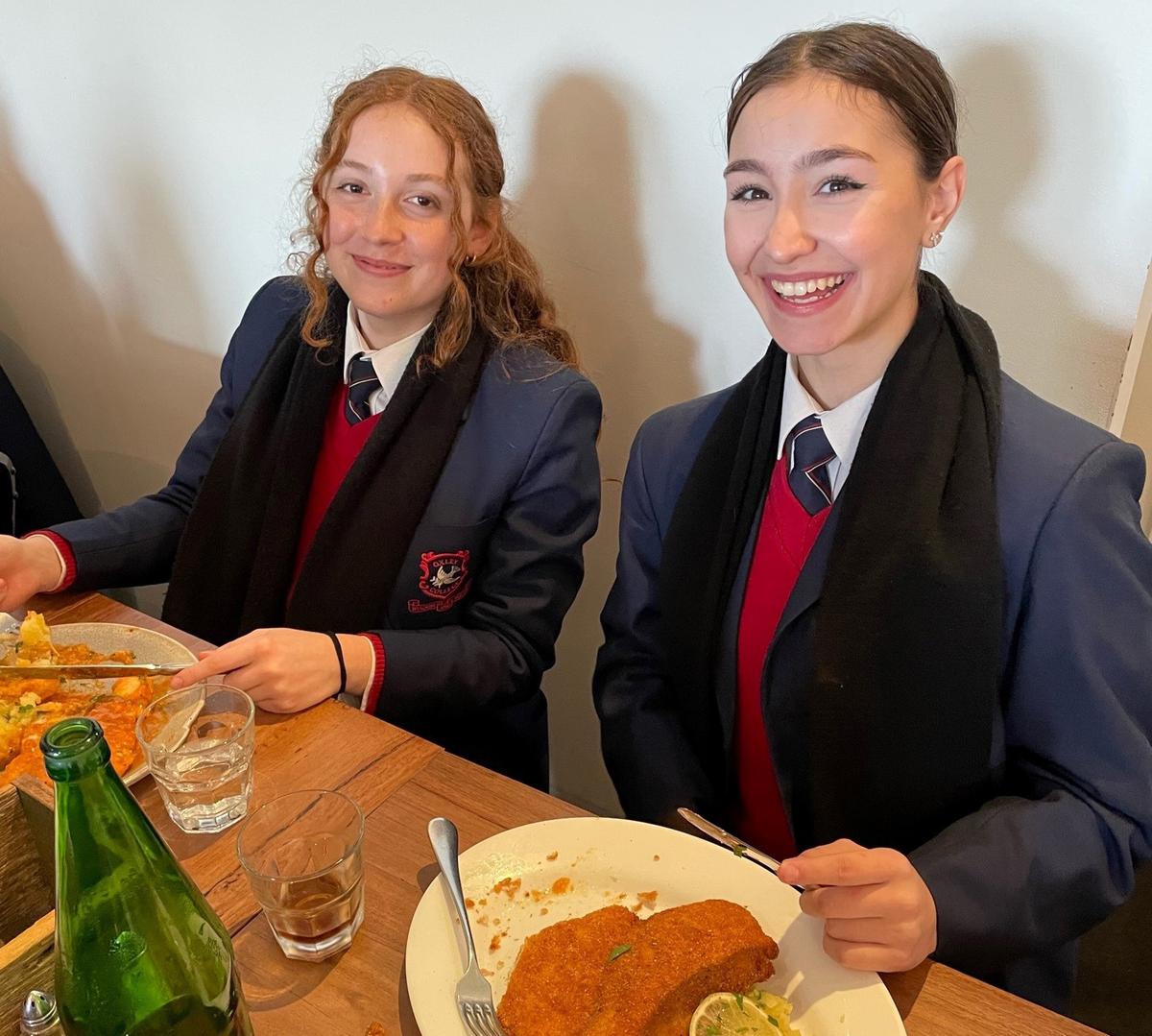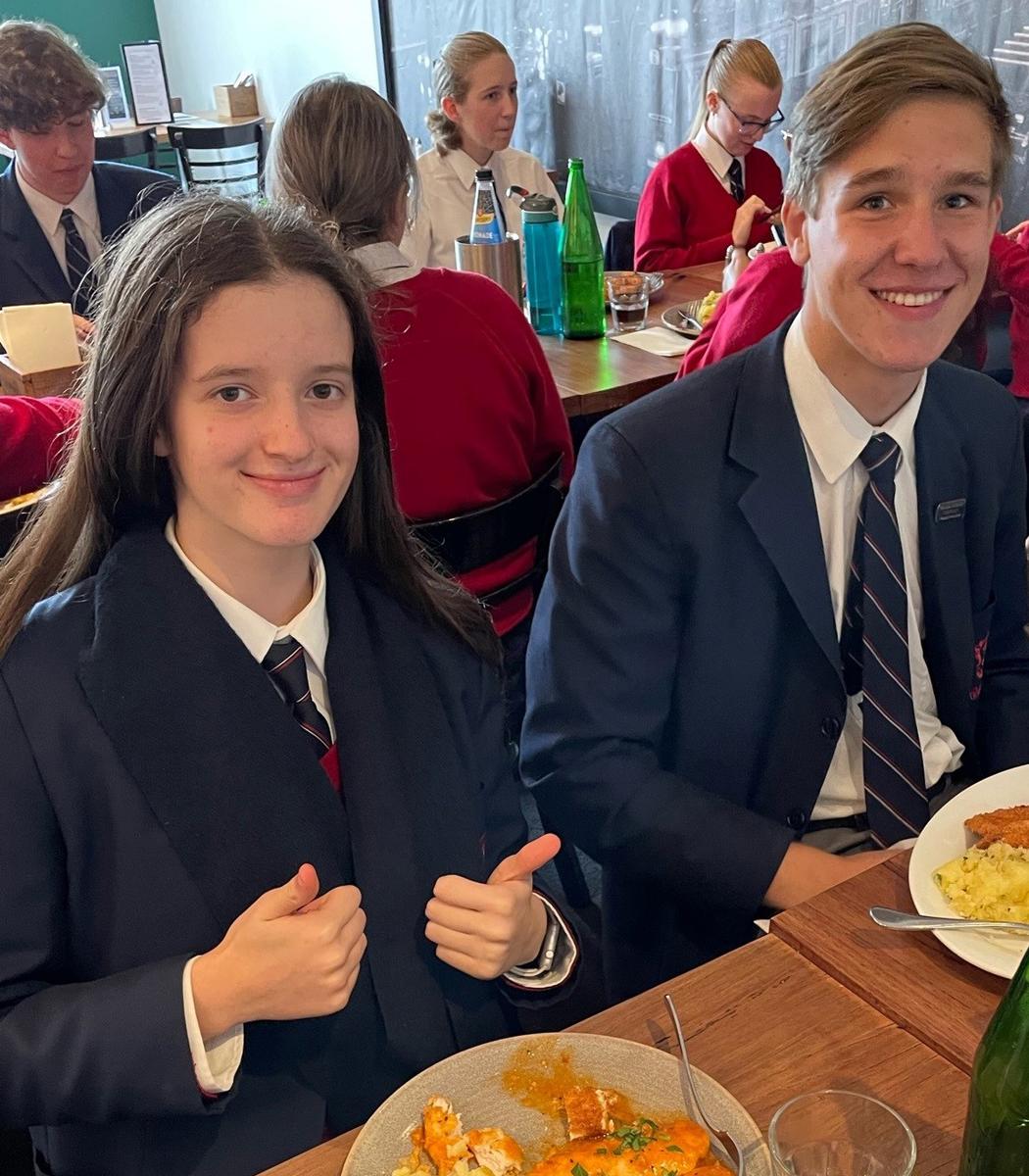Year 11 History
Excursion

Year 11 History
Excursion
Paul Grinwald was born in Paris, France on 9 March 1933. He was the eldest child of Polish parents who had emigrated to France in search of work opportunities. Life started to improve for the Grinwald family until the invasion of France by Nazi Germany in 1940. Paul gradually experienced increasing restrictions on his way of life until 1942 when the Jews of France were rounded up to be sent East to the concentration and death camps. Thanks to good fortune and the selfless actions of a succession of courageous strangers, Paul and his family survived the war. The Grinwalds migrated to Australia in 1946, and Paul graduated from university by the age of 20. He has lived in Melbourne ever since.
Our Modern History class has been investigating social and cultural change in Nazi Germany, with a strong focus on the persecution of the Jews and the Holocaust. This included watching a screening of Schindler’s List, a harrowing depiction of the persecution of Polish Jews in Krakow. Before our visit to talk with Paul at the Melbourne Holocaust Museum (MHM) we watched his video testimony in which he recounted his experiences during World War II. Students then developed a range of questions to ask Paul, enabling them to move beyond the broad narrative of the Holocaust and to engage with him on a personal level. In an age of mass media consumption and the proliferation of conspiracy theories and disinformation, this type of authentic investigation is particularly important for all students. They can become witnesses to the horrors of the Holocaust and the suffering that hatred can bring and honour the memories of people like Paul by standing up to hatred and prejudice.


Unfortunately, on the day of our visit to the MHM, Paul tested positive for COVID and was unable to meet with us. While the students were understandably disappointed, they reacted with great maturity to participate in a range of object-based learning activities. This class has worked especially hard so far this year, and they were able to apply a high level of historical knowledge while working in groups to analyse a range of Holocaust artefacts, including items of clothing, letters, posters and more.
After the MHM experience, we visited the Budapest Restaurant in Elsternwick for an authentic Eastern European dining experience. David, the manager, shared his own family story with the class – both sets of his Jewish grandparents survived the Holocaust, and his restaurant is a living monument to their extraordinary lives. The food was very good too.






When reflecting on their learning, students had this to say:
I found the MHM a really interesting experience because it broke down the Holocaust into individual people and shared individual stories that highlighted how discriminated against and how dehumanised the Jewish people were as well as showing just how much was lost during the Holocaust, not just the number of lives that were lost but the culture, the hope and so much more.
Phoebe Tonissen-McGrath (11.15)
Looking at the items that the survivors had collected from their lives during the Holocaust was very impacting. Holding these items and then seeing their owners’ photos on the wall helped to bring to life what we had learnt in class. Learning about how essential regaining identity was for the survivors to readjust to life was something I hadn't considered before, even if that just meant a girl stitching a letter ‘E’ on a toiletry bag to show that something belonged to her in the world.
Darci Rose (11.16)
It was incredible to be given the opportunity to go to the MHM and learn more about the Holocaust, even if we didn't get to speak to a Holocaust Survivor, it was still incredible. The MHM really helped me understand more that the survivors didn't get their lives back at the snap of the fingers, they struggled. Many were very sick, malnourished, lost their homes to other people, lost their identity, culture, religion, family. For some it took so many years just to recover from the horrors they suffered. David Prince, one of the survivors, said "Do not hate, but tolerate", and I think that this applies to everyone in their everyday life. This is something that I will always remember.
Grace Richards (11.13)
At the MHM, I learnt that the people who saved or hid Jewish people were rewarded with a certificate and honoured for their actions. Going on this excursion made me make more personal connections with the survivors and to see them as not just six million lives lost, but six million individuals who were slaughtered. It helped outline the themes that caused the Holocaust and what ideas, or beliefs caused the killings to continue and worsen.
Jack Driessen (11.13)
The Holocaust continues to be relevant to our lives today, 77 years after the collapse of the Nazi regime and the end of the Holocaust. Anti-Semitic hate crimes recently hit an all-time monthly high in Victoria, where public displays of the Nazi swastika have now been criminalised. Closer to home, a local soccer ground in Lilydale was vandalised with Nazi imagery. So, what can we do? I think the words of Rabbi Jonathan Sacks, Chief Rabbi of Belfast, Ireland, say it best:
We should teach our children that it doesn’t have to be this way. That one who isn’t in my image is still in God’s image. That humanity lives in the face of a stranger. That difference doesn’t threaten but enlarges our world. Our children are capable of great courage; every act of courage gives birth to hope; and hope has the power to defeat hate. Let us honour the memory of those who died by teaching our children to honour life and never forget that the people who are not like us, are still people, like us.
If you would like to learn more of Paul’s story, you can watch his video testimony here:
Stephen White
Head of Humanities